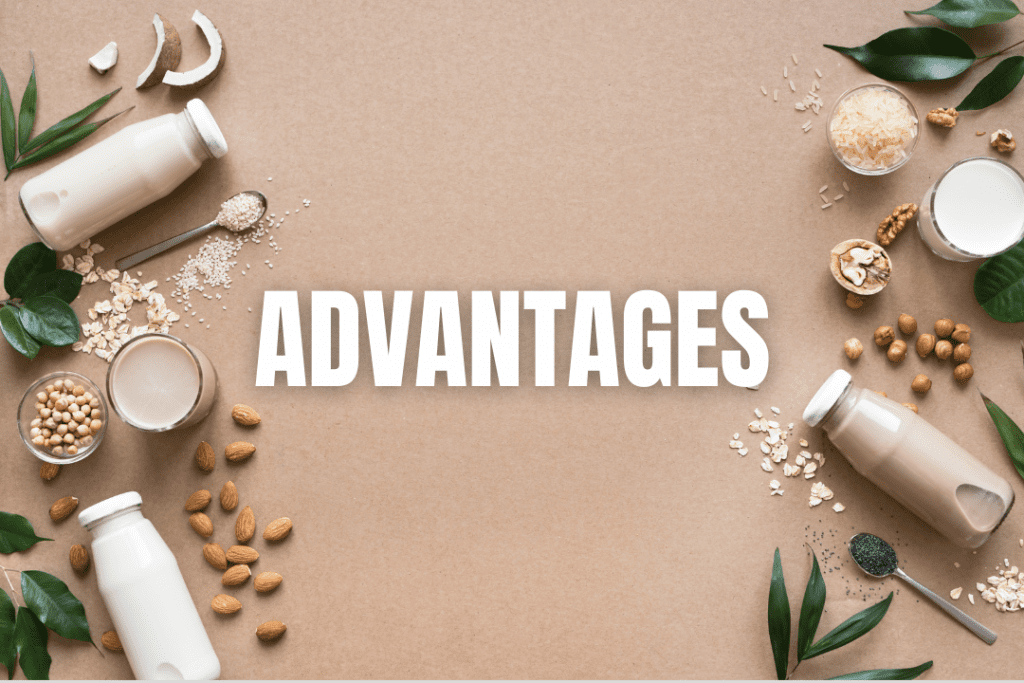Understanding Plant Based Proteins
This type of protein particularly derived from products such as beans, nuts, seeds, grains, and vegetables. Such proteins are good nutrients and also have some additional properties, for instance, dietary fiber and antioxidant properties for the organism’s benefit. Protein is good for the actual formation of tissues, the growth of enzymes, and for boosting the immune system. I believe it’s very essential to get sufficient protein intake, more so when one is taking plant-based foods.

Advantages of taking plant based proteins for our health
Plant protein also assists in decreasing saturated fats and is a product that is devoid of cholesterol so it is great for the heart. They also help to reduce the likelihood of acquiring unfamiliar diseases, including diabetes and certain types of cancers. In the studies that have been carried out, it was discovered that plant-based diets help in the management of body weight, blood pressure, and cholesterol

Popular Plant Based Protein Sources
Legumes: Being legumes, they are rich sources of proteins, fibers, iron and folate, and they include beans, lentils and chickpeas.
Soy Products: Tofu, tempeh and edamame are also among the complete proteins that are so versatile when it comes to preparing meals.
Nuts and Seeds: The protein and fat sources that are stable are almonds, chia seeds, flaxseeds, and hemp seeds.
Whole Grains: Quinoa contains protein, fiber and minerals; faro contains protein and fiber; and konjac has millet and macronutrients.
Vegetables: It is also preferred to take protein- and vitamin-rich foods such as broccoli, spinach and peas.
Plant-Based Protein Powders: Protein powders (pea, hemp, and brown rice should also be included; they are easy to make from pea, hemp and brown rice and provide a quick protein fix.
Transitioning to the Use of Plant Based Proteins
Adding plant-based protein to meals is easy.
- Incorporate the beans or lentils in soups, stewsand salads.
- Drinking or spreading the nut butters is recommended in smoothies and toasts.
- You can add the seeds on yogurts, oatmeal, salads and other foods.
- Replace meat with tofu or tempeh in meals to give your body a healthy boost.
- Use recipes that have whole grains, such as quinoa, to prepare side dishes.

Plant Based Proteins vs Animal Protein
Pros and Cons: High-fiber proteins reduce the intake of calories and fat, but it should be noted that they may be incomplete proteins, thus necessitating the consumption of several sources.
Environmental Impact: Plants protein has a smaller ecological imprint score, meaning that it utilizes less water, land, and energy and emit fewer greenhouse gases.
Common Misconceptions: Based on the above information, plant proteins tend to be perceived as being of low quality, though such proteins are not lacking in any nutrients if well incorporated into the diet. They are also very useful to aid in muscle buildup, particularly when used concurrently with resistance training and sufficient consumption of proteins.
Ensuring Complete Protein Intake
Lower protein quality is obtained when different quantities of the plant proteins are mixed, but the above formulation will go a long way in making up for the deficiency in the amino acid profile. Combining such foods as rice and beans or hummus with whole-grain pita satisfies this criteria.
Plant Based Proteins for Athletes
Protein from plants assists in boosting of the performance of athletes given proper nutrients and fast recovery. Packed with antioxidants and anti-inflammatory nutrients, plant-based diets can help decrease muscle pain and increase wellbeing.
Gluten-Free Plant Based Proteins Sources
All fruits, vegetables, quinoa, lentils, chickpeas and most nuts and seeds do not contain gluten and are high in protein, which is useful for people with gluten sensitivity.
Allergy-Friendly Plant Based Proteins Options
Despite the fact that they belong to the legumes family, lentils, chickpeas and certain seeds, including hemp and chia, are extremely safe for people suffering from food allergies, given the fact that they can contact with allergens.
The Best Sources of Plant Based Proteins, According to 4 Nutritionists
According to nutrition experts, it’s best to concentrate on whole foods, the range of foods, and their quality. They also recommend people take supplements for such nutrients as vitamin B12.
Common Mistakes to Avoid
Do not overeat on processed food or completely exclude exercises that include the use of proteins and food diversification. To maintain good healthy habits in dieting, one should plan the meals to be taken, make sure to include different protein types and opt for whole foods that offer the nutrients required in the body.
Innovations in Plant Based Proteins
New products and services to be developed in the future are cultured meat, plant-based fish, and other products, all protein blends from plants, focusing on the future market of healthy diet.
Plant Based Proteins: The New Trend of Consuming Protein
The market for plant-based proteins is on the rise, and stores and restaurants offer more plant-based options for consuming proteins.

FAQs
How many grams of plant protein should I eat a day?
The recommended intake of fats for adult is 0.8 It also means that the daily intake of protein should be about 8 protein grams per kg of body weight. Protein sources of different types are necessary to fulfill this condition.
Is it possible for plants proteins to help build muscles?
Yes, sufficient amounts of protein and variety of protein sources, along correct resistance training.
What type of food for vegetarian is rich in protein?
Beans, tofu, peanuts, lentils, whole grain products and vegetables, particularly Broccoli and spinach,.
Are there any side effects of consuming Plant Based Proteins?
Most plant-based proteins do not have side effects; however, they come with the following health implications:.

Top Stories on Spotlight
Plant based proteins for children: beneficial or not?
Yes, if the body is well nourished as a result of taking balanced diets. But before that, it would be suggested that you consult a pediatrician or a nutritionist for planning.
Comparing plant-based protein and animal protein is a worthy question to ask because both sides are arguing to be the preferable source of protein.
It is very useful in reducing saturated fats and cholesterol when plant protein is embraced in the preparation of meals. Different sources shall be combined to make sure that it provides a complete protein and, in addition, is environmentally friendly.
Conclusion
It is well known that people should take plant-based protein to enjoy numerous health and environmental advantages. The key that is provided by incorporating different sources of food will make you adopt a balanced diet that will improve your health. Being a sports person, having a dietary disorder, or simply looking for a healthier lifestyle, plant proteins will allow you to change your eating habits for the better in any way.
Also read













0 Comments